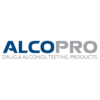In the DOT drug and alcohol testing program, employers and service agents are not required to obtain written employee authorization to disclose drug and alcohol testing information where disclosing the information is required by 49 CFR Part 40 and other DOT Agency & U.S. Coast Guard (USCG) drug and alcohol testing regulations. 49 CFR Part 40 and DOT Agency & USCG regulations provide for confidentiality of individual test-related information in a variety of other circumstances.
• Even if drug and alcohol testing information is viewed as protected under the Health Insurance Portability and Accountability Act of 1996 (HIPAA) rules, it is not necessary to obtain employee written authorization where DOT requires the use or disclosure of otherwise protected health information under 49 CFR Part 40 or the other DOT Agency & USCG drug and alcohol testing regulations.
• Unless otherwise stipulated by 49 CFR Part 40 or DOT Agency & USCG regulations, use or disclosure of the DOT drug and alcohol testing information without a consent or authorization from the employee is required by the Omnibus Transportation Employees Testing Act of 1991, 49 CFR Part 40, and DOT Agency & USCG drug and alcohol testing regulations.
• Consequently, an employer or service agent in the DOT program may disclose the information without the written authorization from the employee under many circumstances. For example:
— Employers need no written authorizations from employees to conduct DOT tests.
— Collectors need no written authorizations from employees to perform DOT urine collections, to distribute Federal Drug Testing Custody and Control Forms, or to send specimens to laboratories.
— Screening Test Technicians and Breath Alcohol Technicians need no written authorizations from employees to perform DOT saliva or breath alcohol tests (as appropriate), or to report alcohol test results to employers.
— Laboratories need no written authorizations from employees to perform DOT drug and validity testing, or to report test results to Medical Review Officers (MROs).
— MROs need no written authorizations from employees to verify drug test results, to discuss alternative medical explanations with prescribing physicians and issuing pharmacists, to report results to employers, to confer with Substance Abuse Professionals (SAPs) and evaluating physicians, or to report other medical information (see §40.327).
— SAPs need no written authorizations from employees to conduct SAP evaluations, to confer with employers, to confer with MROs, to confer with appropriate education and treatment providers, or to provide SAP reports to employers.
— Consortia/Third Party Administrators need no written authorizations from employees to bill employers for service agent functions that they perform for employers or contract on behalf of employers.
— Evaluating physicians need no written authorizations from employees to report evaluation information and results to MROs or to employers, as appropriate.
— Employers and service agents need no written authorizations from employees to release information to requesting Federal, state, or local safety agencies with regulatory authority over them or employees.
